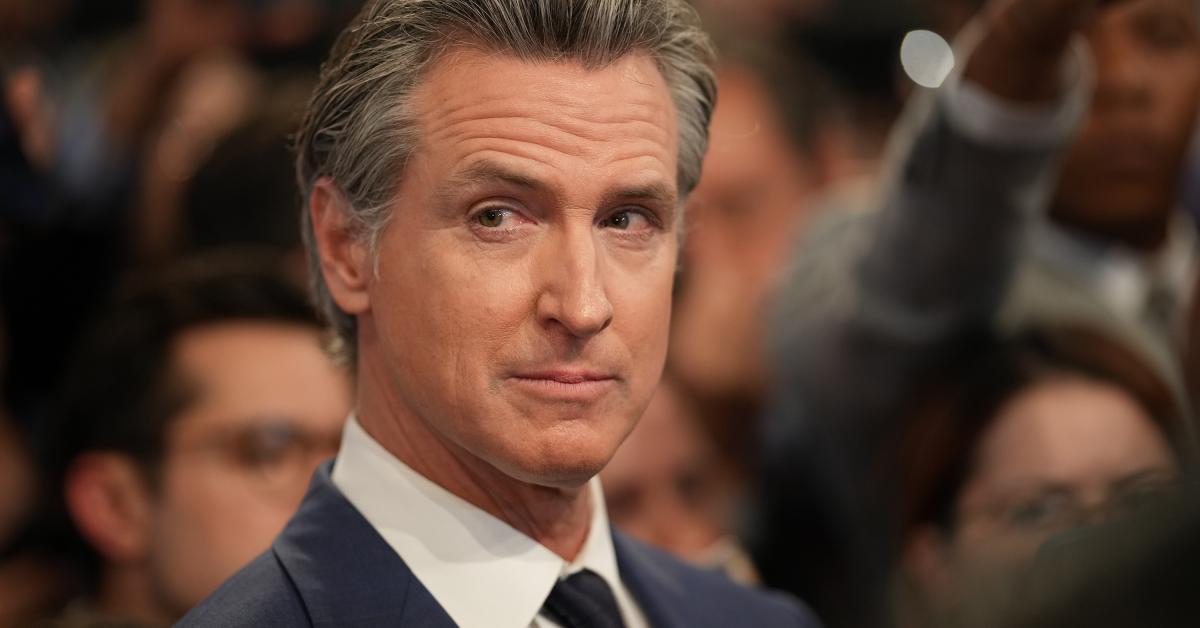We support our Publishers and Content Creators. You can view this story on their website by CLICKING HERE.

Gov. Gavin Newsom announced Friday that the state will be renewing their partnership with the city of Oakland to provide support from the California Highway Patrol (CHP), but with conditions.
“The CHP was tasked in July to quadruple the enforcement efforts and the partnership with the city of Oakland,” Newsom said. “That commitment was to expire by the end of the month. We are going to extend that commitment, but not for an open-ended period of time.”
Newsom noted that the biggest reason for the need of CHP partnership Oakland is because of city regulations prohibiting local city police officers from pursuing criminals unless there is reasonable suspicion to believe the fleeing individual committed a violent forcible crime, a crime involving the use of a firearm or there is probable cause the individual is in possession of a firearm.
“You can be drunk, you can run a red light, you can come close to swiping a school bus during the morning hours right in front of a police officer and the pursuit policy in Oakland says that we cannot pursue that suspect,” Newsom said. “We’re at that point in time where we need to see some commensurate support and reforms and changes as it relates to policing her in Oakland in order to consider extending this state subsidized partnership.”
The CHP is not under the same restrictions as the Oakland police department and can pursue criminals, placing that burden entirely on the CHP. According to Newsom, the CHP has made 1,347 arrests and recovered 2,500 vehicles that were stolen since February.
At this time, the CHP has partnerships with San Francisco, Bakersfield and San Bernadino in addition to Oakland. However, Oakland is the only city in the state with an anti-pursuit regulation – something that CHP Deputy Commissioner Ezery Beauchamp says is to the detriment of the community.
“Criminals are fully aware that when lights come on in certain communities, certain municipalities, that police are not allowed to chase them,” Beauchamp said. “We have had CHP officers who pursue individuals and upon arrest, the criminals tell us they didn’t think we were allowed to chase them.”
However, Beauchamp said that the Highway Patrol does not have “infinite resources” and doesn’t have the capacity to take over local police responsibilities. Newsom said that he didn’t want to sound “threatening,” but Oakland police will need to make changes in order to keep receiving support from the state.
“You’re not getting the CHP to do the job of local law enforcement,” Newsom said, noting that earlier this year he sent letters to the Oakland Police Department, city council and the mayor asking for a change in policy when the opportunity presented itself in September, but they didn’t.
“We are prepared to continue to support those efforts, but we need to see commensurate reforms here locally,” Newsom said. “It’s an extreme outlier in the state of California.”
Barbara Leslie, CEO of the Oakland Chamber of Commerce, said that the crime rates in the city have heavily impacted businesses.
“Public safety is the primary concern for businesses when making decisions on where to locate, expand or more concerning right now, whether to stay in Oakland at all,” Leslie said. “The ripple effect this is having on our small businesses, retailers and restaurants is devastating.”
Earlier this year, the In-N-Out in Oakland closed due to crime rates. This was the first time the chain has closed a restaurant. In-N-Out Chief Operating Officer Denny Warnick released a statement in January 2024 that customers and employees were repeatedly experiencing car break-ins, property damage, theft and armed robberies.
City council members Kevin Jenkins and Ken Houston said that they are pushing the Oakland Police Commissioner to amend this policy or they will have to take action.
“Enough is enough,” Houston said. “We want public safety [and] we want change.”

 Conservative
Conservative  Search
Search Trending
Trending Current News
Current News 





